If you were captivated by the gripping documentary 'Terror's Advocate' (2007), which delves into the controversial life of lawyer Jacques Vergès and his defense of notorious clients, you'll love these 10 similarly provocative films and shows. This article explores titles that challenge moral boundaries, uncover dark truths, and spark intense debate—perfect for fans of thought-provoking cinema.

The Battle of Algiers (1966)
Description: A seminal film that depicts the brutal conflict between Algerian insurgents and French colonial forces, offering a gritty, realistic portrayal of urban guerrilla warfare and counterinsurgency, similar to films that tackle the complexities of political violence.
Fact: The movie was banned in France for several years due to its controversial and realistic depiction of colonial violence.
 Watch Now
Watch Now 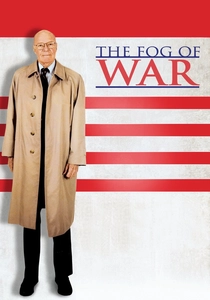
The Fog of War (2003)
Description: This documentary provides an insider's view of political decision-making during times of war, offering a reflective and critical examination of power, ethics, and consequences, much like films that dissect the moral ambiguities of historical conflicts.
Fact: The film is structured around 11 lessons from the life of former U.S. Secretary of Defense Robert S. McNamara, blending archival footage with his candid interviews.
 Watch Now
Watch Now 
The Baader Meinhof Complex (2008)
Description: This film dramatizes the rise and fall of the Red Army Faction, capturing the ideological fervor and violent actions of the group, akin to narratives that explore the psychology and consequences of radicalism.
Fact: The movie is based on real events and uses actual archival footage to enhance its historical authenticity.
 Watch Now
Watch Now 
Standard Operating Procedure (2008)
Description: A documentary that scrutinizes the Abu Ghraib prison scandal, revealing the systemic and human factors behind the abuse, much like films that expose the dark underbelly of institutional power.
Fact: The film includes interviews with the soldiers involved in the scandal, as well as analysis of the infamous photographs that brought the abuse to light.
 Watch Now
Watch Now 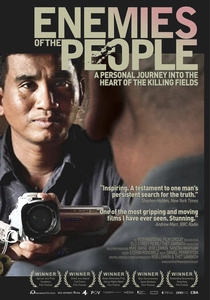
Enemies of the People (2009)
Description: A deeply personal investigation into the Khmer Rouge's atrocities, this documentary uncovers the human stories behind the regime, similar to how some films explore the personal and collective trauma of political violence.
Fact: The filmmaker, whose family was killed by the Khmer Rouge, spent years gaining the trust of former regime members to get their confessions on camera.
 Watch Now
Watch Now 
The Gatekeepers (2012)
Description: This documentary features interviews with former heads of Shin Bet, Israel's security agency, providing a rare insider's perspective on counterterrorism and its moral dilemmas, akin to films that explore the ethical gray areas of state security.
Fact: The film includes never-before-seen footage and candid confessions from six former Shin Bet directors, offering unprecedented access to their decision-making processes.
 Watch Now
Watch Now 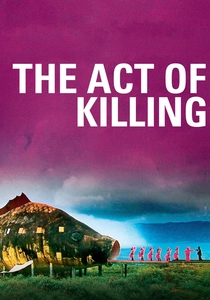
The Act of Killing (2012)
Description: This documentary explores the psychological and moral complexities of perpetrators of mass violence, using surreal reenactments to delve into their minds, similar to how some films examine the blurred lines between justice and terror.
Fact: The film features former Indonesian death squad leaders reenacting their killings in various cinematic genres, including gangster and western styles.
 Watch Now
Watch Now 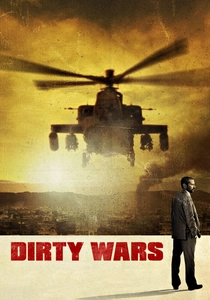
Dirty Wars (2013)
Description: This investigative documentary uncovers the hidden world of covert U.S. military operations, exposing the human cost and moral ambiguities of modern warfare, similar to films that challenge official narratives of conflict.
Fact: The film follows journalist Jeremy Scahill as he travels to Afghanistan, Yemen, and Somalia to uncover the truth behind targeted killings and secret wars.
 Watch Now
Watch Now 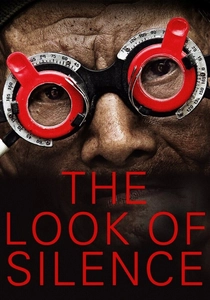
The Look of Silence (2014)
Description: A companion piece to 'The Act of Killing,' this documentary focuses on the victims' perspective, confronting perpetrators with their past actions, mirroring the intense moral and emotional confrontations found in films about historical atrocities.
Fact: The director filmed secretly for years, as the subject matter was highly dangerous in Indonesia, where the genocide is still a taboo topic.
 Watch Now
Watch Now 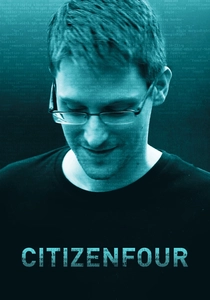
Citizenfour (2014)
Description: A real-time documentary about Edward Snowden's revelations of global surveillance, capturing the tension and paranoia of whistleblowing, much like films that delve into the personal and political risks of exposing state secrets.
Fact: The filmmaker was in Hong Kong with Snowden when he first went public with his leaks, providing an intimate look at the events as they unfolded.
 Watch Now
Watch Now 








